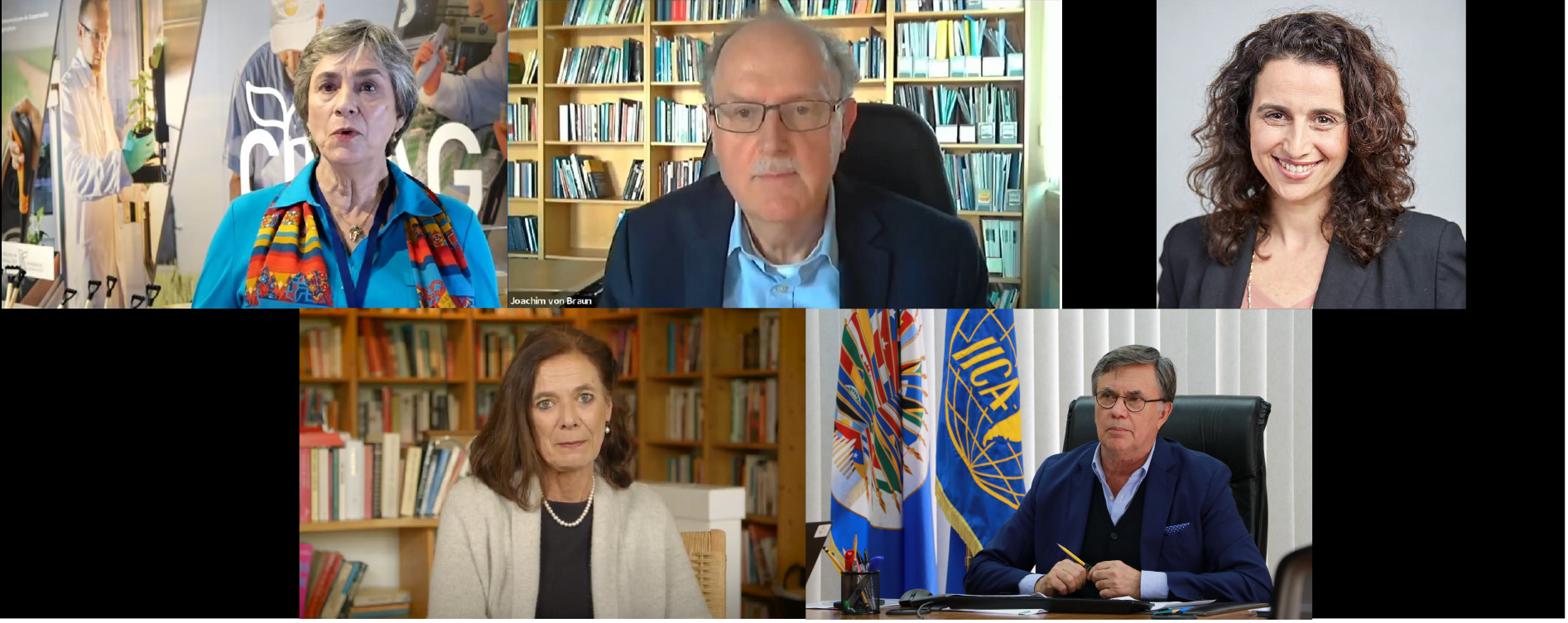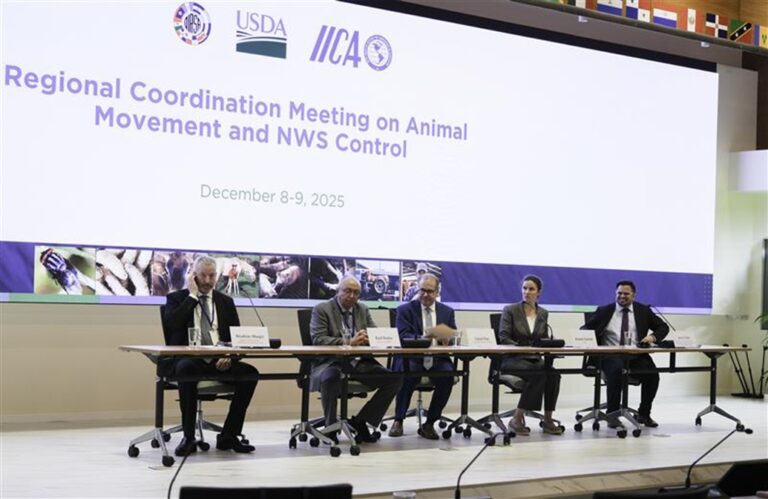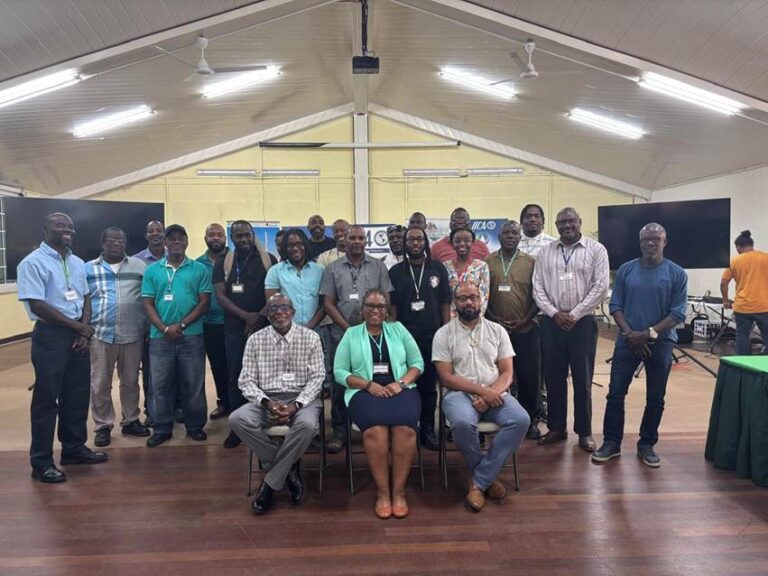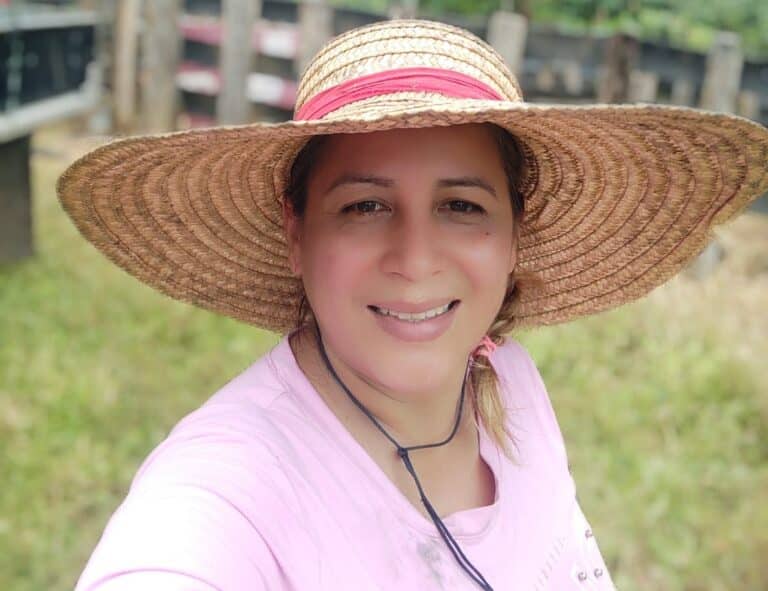Experts call for the adoption of an ambitious public-private partnership agreement aimed at administering and channeling investment for the advancement of science and technology systems

Rome, 27 July 2021 (IICA). In the wake of the COVID-19 pandemic, science and innovation should play a central role in building more economically, socially and environmentally sustainable food systems. That was the consensus among the experts who spoke on the opening day of the global forum being held in Rome on the future of the way in which food is produced and consumed.
During the first day of the Food Systems Pre-Summit, the experts also called for an ambitious public-private partnership agreement aimed at administering and channeling investment for the advancement of science and technology systems, which would have a positive impact on productivity, income, and the environment.
The speakers at the event singled out for special mention the need to share knowledge and experiences, and to ensure the participation of every sector of production and knowledge in dialogues designed to improve food production and reduce the risks involved.
They also highlighted the important role of traditional knowledge in the construction of more sustainable systems.
“Science and Innovation for Food Systems Serving People and Planet” was the title of a panel discussion in which the Director General of the Inter-American Institute for Cooperation on Agriculture (IICA), Manuel Otero, took part. The other participants were Louise Fresco, Vice Chair of the Summit Scientific Group and President of the Executive Board of Wageningen University & Research, in the Netherlands; Elizabeth Hodson de Jaramillo, Professor Emeritus of the School of Sciences of the Pontificia Universidad Javieriana de Bogotá and member of the Inter-American Network of Academies of Sciences (IANAS); and Lee Recht, Head of Sustainability at Aleph Pharms, a private corporation.
The panel discussion was opened by Joachim von Braun, Chair of the Summit Scientific Group and Director of the Center for Development Research at the University of Bonn, Germany, while Magdalena Skipper, Editor in Chief of scientific journal Nature, served as the moderator.
“Food system sustainability calls for large-scale public- and private-sector investment in science and technology that would yield benefits both for people, because it would improve productivity, and the planet, as it would restore the well-being of ecosystems,” Von Braun said.
Otero then pointed out that “IICA has a record of achievement dating back nearly 80 years, and since the organization’s founding its 34 member countries have been working to transform their agrifood systems. In the Americas, large countries coexist with small ones, big food producers and exporters operate alongside importers, and there are both tropical and temperate zones. This means that, whatever the scenario, as a region we are called upon to play a strategic role in the discussion of the future of food production.”
He added that, “since the UN Secretary General convened this Summit, IICA has made huge efforts to make contributions. The process culminated with a regional consensus comprised of 16 points with global applications. One of them asserts that the current scenarios in the biological sciences, digitalization, and other fields of science open up previously unimagined options for striking a new balance between production and sustainability, and constructing a new, circular bioeconomy as a means to revitalize rural areas, and stimulate more and better integration of agriculture into the wider economy. That is how we can ensure that we achieve the social, economic, and environmental objectives implicit in the Sustainable Development Goals (SDG), and in the transformation effort that the Summit is proposing.”
The IICA Director General gave an overview of the progress made with agricultural sustainability across the continent over the last 30 years, based on the incorporation of biotechnology, conservation agriculture using methods such as direct seeding, and the transition toward agrosilvopastoral systems that combine forestry, crop and livestock activities.
“We should prioritize the living conditions and well-being of family farmers. We need healthy rural communities to produce healthy, nutritious food. The health of urban dwellers depends on it,” stressed Otero.
He also mentioned the importance of having rules that foster open, transparent, and predictable international trade, which should be governed by multilateral rules, to promote the liberalization of agriculture and lower tariff and nontariff barriers, thereby ensuring an efficient, global food system.
Professor Fresco spoke about the enormous potential of agro-science, bioscience and digital innovation for increasing the sustainability of agrifood systems. “Countries, consumers, and farmers must join together in the process of creating the best possible science for the future. It is absolutely crucial that we achieve greater sustainability.”
Elizabeth Hodson de Jaramillo was convinced that science and technology would contribute to the transformation of agrifood systems, raising productivity, improving health, and regenerating nature. “The bioeconomy is a driving force for resilience. We must bring about a cultural change, which includes communication and education, so that all the actors get involved in more sustainable production. We can harness digitalization and precision agriculture to produce more with less and foster the protection of biodiversity.”
Lee Recht described the cultivated or artificial meat being produced by the Israeli startup Aleph Farms as a contribution to sustainable agriculture, responsible consumption and a healthy diet. “We need flexible solutions especially in times of crisis,” Recht observed.
The 2021 Food Systems Pre-Summit, the preparatory event for the Summit that will take place in New York, continues in the Italian capital until 28 July. The UN convened these events with a view to establishing global commitments and actions that will transform food systems, and thereby set the world on the road to achieving the Sustainable Development Goals (SDG), which are designed to deliver peace and prosperity to the world’s population.
Institutional Communication Division
comunicacion.institucional@iica.int











